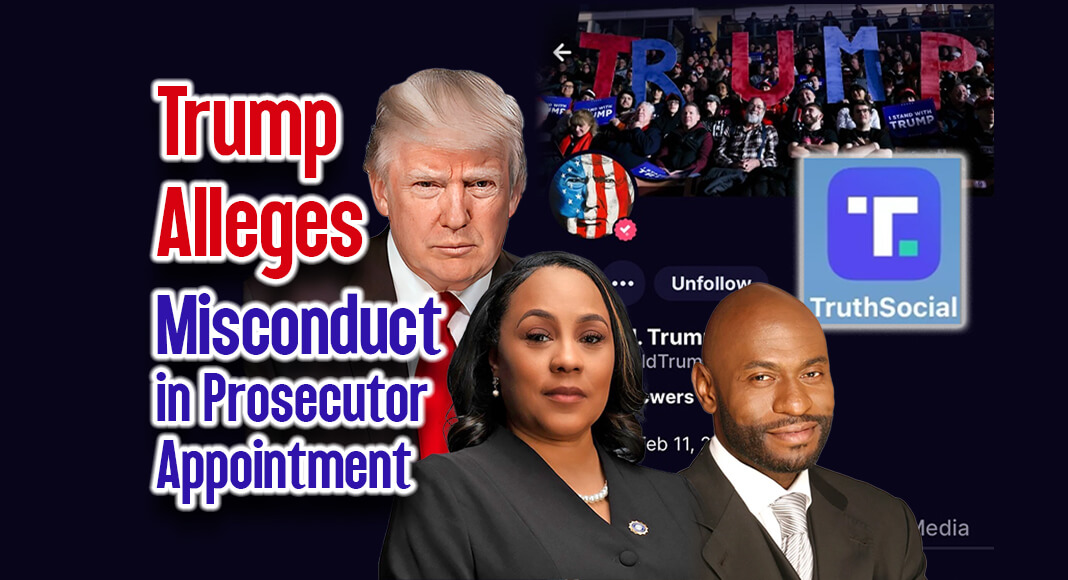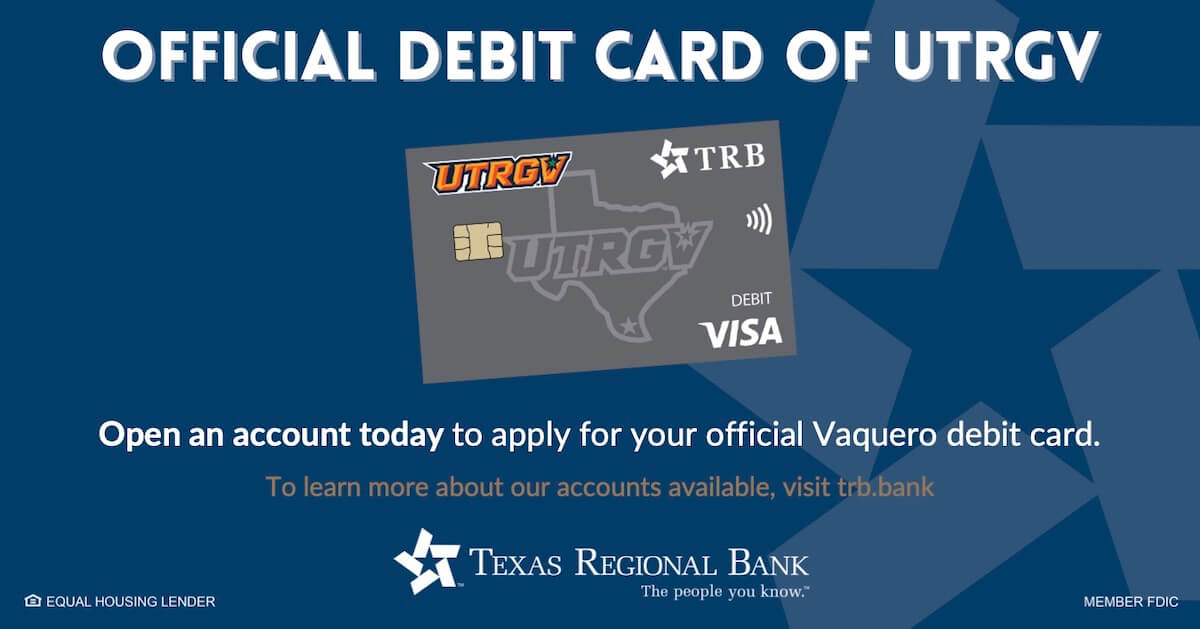
Texas Border Business
By Roberto Hugo González
In a dramatic turn of events, former President Donald Trump has taken to his social media platform, TRUTH, to unveil allegations of scandal and impropriety at the heart of legal efforts to prosecute him. The controversy involves Fani Willis, the District Attorney of Fulton County, who Trump claims has admitted to engaging in a sexual relationship with a prosecutor specifically appointed for the task of targeting him. This accusation not only raises questions about the ethical standards within the prosecutorial office but also hints at a deeper politicization of legal proceedings.
According to Trump, this appointment was not merely a matter of legal procedure but was steeped in coordination with high-level political entities, including the White House and the Department of Justice (DOJ). The purpose, as Trump suggests, was singular and clear: to “GET PRESIDENT DONALD J. TRUMP.” Such a strategy, as outlined by Trump, appears to leverage the prosecutorial process as a tool for political gain, targeting Trump in his capacity as the most high-profile individual and the Republican Nominee.
The allegations extend beyond mere improper relations, touching on financial irregularities and motivations. Trump asserts that by focusing prosecutorial efforts on him, Willis was able to secure an unprecedented amount of funding for the case—almost a million dollars. This sum far exceeds what is typically allocated for prosecutorial efforts, implying that the relationship between Willis and the appointed prosecutor was exploited to garner additional resources, ostensibly for the purpose of ensuring a more aggressive prosecution.
Trump’s revelation on TRUTH aims to shed light on what he views as a significant corruption within the legal system, suggesting that the case against him is not only flawed but fundamentally discredited. He concludes with a definitive statement that the “scam” surrounding the prosecutorial efforts against him is “TOTALLY DISCREDITED & OVER,” implying that the alleged misconduct has effectively undermined the legitimacy of the case.
This statement from Trump has ignited a firestorm of debate and speculation, raising serious concerns about the integrity of the legal process and the potential for abuse of power for political ends. The implications of such allegations are profound, suggesting a need for greater transparency and accountability in the appointment of prosecutors, especially in cases involving politically sensitive figures.
As the situation continues to develop, it is clear that the controversy surrounding the prosecutorial efforts against Trump is far from resolved. The allegations put forth by Trump through his TRUTH app call for a thorough examination of the facts and a reevaluation of the standards by which legal proceedings against public figures are conducted. The outcome of this scrutiny could have lasting implications for the American legal and political landscape, highlighting the delicate balance between justice and political strategy.
Below Q&A about the legality if the white House has the right to direct a prosecution at the state level. Information gathered through internet research.
Q: Is it legal for the White House to direct prosecution at the state level against residents of the US?
A: The White House, which is the executive office of the President of the United States, does not have the authority to direct prosecutions at the state level. The United States has a federal system of government where states have significant autonomy, especially in matters of criminal law and procedure. Here’s how it breaks down:
Federal vs. State Jurisdiction: The legal system in the United States is divided between federal and state jurisdictions. Federal laws apply to the entire country, while state laws apply within individual states. The federal government, including the President and the White House, does not have the authority to dictate state-level prosecutions. State prosecutions are managed by state prosecutors, such as district attorneys or state attorneys general, who are independent of the federal government.
Separation of Powers: The U.S. Constitution establishes a system of separation of powers among the three branches of government: the legislative branch (Congress), the executive branch (the President and the administrative agencies), and the judicial branch (courts). This separation of powers is designed to prevent any one branch from exercising too much power. Directing prosecutions at the state level by the White House would violate this principle by overstepping the boundaries of the executive branch into the judicial realm at the state level.
Independence of the Judiciary: The judiciary, both at the federal and state levels, is independent of the executive branch. This independence is crucial for the fair administration of justice. Prosecutorial decisions, including whether to bring charges in criminal cases, are supposed to be made independently of political influence, based on evidence and legal standards.
Exception – Federal Influence: While the White House cannot direct state prosecutions, the federal government can sometimes influence or take over cases through federal law enforcement agencies (e.g., the FBI) and the Department of Justice if the matter involves federal law or crosses state lines. However, these actions are subject to legal standards, oversight, and sometimes require cooperation with state authorities.
Political and Ethical Considerations: Even if it were legally possible, the direct involvement of the White House in directing state-level prosecutions would raise serious ethical and political concerns about the abuse of power and the politicization of the justice system.
In summary, the White House does not have the legal authority to direct prosecutions at the state level against residents of the United States. Such actions would contravene the principles of federalism, separation of powers, and the independence of the judiciary that are foundational to the U.S. legal system.
Q: Suppose the White House does not have the legal authority to direct prosecutions at the state level against residents of the United States and still does it. Is the president legally responsible for violation? What is the remedy?
A: The question of whether a president is legally responsible for directing prosecutions at the state level against residents of the United States, despite not having the legal authority to do so, raises complex issues of constitutional law, separation of powers, and federalism.
In the United States, the principle of federalism delineates the division of powers between the federal government and the states. Prosecutorial discretion, particularly in the context of criminal law, primarily resides with state authorities for crimes under state law and with federal authorities for crimes under federal law. The President, as the head of the executive branch of the federal government, does not have the authority to direct state-level prosecutions. This authority is generally reserved for state prosecutors, such as district attorneys or state attorneys general, depending on the state’s legal structure.
If a president were to attempt to direct state-level prosecutions, it could be seen as an overreach of federal power and a violation of the separation of powers and federalism principles. The remedies and accountability measures for such actions would depend on the nature of the overreach and the legal frameworks in place. Here are some potential legal and constitutional remedies:
1, Judicial Intervention: Courts could intervene if a case is brought before them challenging the president’s actions as unconstitutional. A court could issue a ruling that blocks the directed prosecutions or declares the president’s actions as exceeding their authority.
2. Congressional Oversight: Congress has oversight powers over the executive branch and could investigate the president’s actions. This oversight could include hearings, reports, and recommendations for corrective action. In extreme cases, if the president’s actions are found to be a severe abuse of power, Congress could consider impeachment and removal from office.
3. State Action: States could resist or refuse to comply with directives from the president that they deem to be unconstitutional or outside the scope of federal authority. State attorneys general could also potentially bring legal action against the federal government to assert their independence and protect their prosecutorial discretion.
4. Public and Political Pressure: Beyond formal legal mechanisms, public opinion and political pressure can play a significant role in addressing perceived overreaches by the executive branch. This could lead to a retraction of the directive or adjustment in policy approach.
It’s important to note that the specifics of any legal action or remedy would depend on the details of the situation, including the nature of the president’s directives and the legal arguments made by both sides. The U.S. Constitution provides a framework for addressing conflicts between federal and state authority, but the resolution of specific disputes often involves complex legal analysis and interpretation.
When the District Attorney (DA) and the assigned prosecutor work under the direction of the White House, it presents a complex scenario that raises concerns about the separation of powers, federalism, and the independence of the prosecutorial process in the United States. Here’s a breakdown of the potential issues and actions that could be taken in such a situation:
1. Independence of the Judiciary and Prosecutorial Discretion
• Judicial Independence: The U.S. judicial system is designed to operate independently of the executive branch (which the White House represents). This separation ensures that legal decisions and prosecutorial actions are made based on the law, not political influence.
• Prosecutorial Discretion: Prosecutors, including DAs, have discretion in deciding which cases to pursue and what charges to bring. This discretion should be exercised independently, based on legal considerations rather than political directives.
2. Potential Conflicts and Constitutional Concerns
• Conflict of Interest: If a DA or prosecutor is perceived to be acting under the direction of the White House, it could raise serious conflict of interest issues, particularly if the cases being pursued have political implications.
• Constitutional Challenges: Actions perceived as politically motivated or influenced by the executive branch might face challenges on constitutional grounds, especially if they appear to infringe on states’ rights or individuals’ civil liberties.
3. Legal and Institutional Responses
• Judicial Review: Affected parties could challenge any prosecutorial action believed to be unduly influenced by the White House in court. The judicial system can review these actions for compliance with legal standards and constitutional protections.
• Legislative Oversight: Congress has oversight responsibilities and could investigate any instances of perceived overreach by the executive branch, including inappropriate influence over prosecutorial decisions.
• Professional Ethics Investigations: Bar associations and legal ethics boards could investigate claims of unethical behavior by prosecutors acting under political influence, potentially leading to disciplinary actions.
4. Public and Political Repercussions
• Public Trust: The perception that the prosecutorial process is being influenced by political considerations could undermine public trust in the justice system.
• Political Backlash: There could be political repercussions for the administration in power, including public criticism, political opposition, and impact on electoral outcomes.
In summary, while the White House and the executive branch have significant power, there are checks and balances in place to prevent undue influence over prosecutorial decisions. If a District Attorney or assigned prosecutor were to work under direct White House direction in a manner that conflicts with their duty to independently uphold the law, there are multiple avenues through which such actions could be challenged and potentially corrected, including legal, institutional, and public mechanisms.












